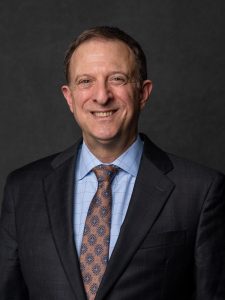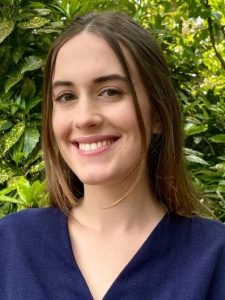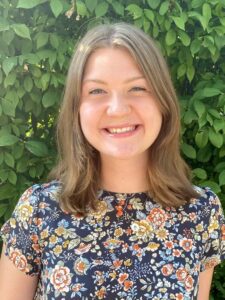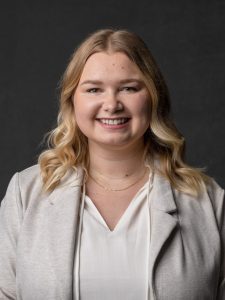The ninth AI Connect webinar focused on AI applications in healthcare and featured a fireside chat with the Director of the US Department of Veterans Affairs’ National AI Institute, a panel of health sector research scientists, and a discussion among international development-focused health experts.
The event began with a fireside chat between Dr. Lloyd Whitman, Senior Director of the GeoTech Center, and Dr. Gil Alterovitz, Director of the National Artificial Intelligence Institute in the U.S. Department of Veterans Affairs (VA). The discussion addressed the opportunities for AI-enabled tools to optimize processes in the healthcare systems for patients, providers, and administrations. As the country’s largest integrated health system, VA conducts research and development to integrate AI capabilities into prognostic, diagnostic, and administrative processes. To ensure equitable and trustworthy application of AI, the VA is allegedly piloting an AI Institutional Review Board framework. Dr. Alterovitz concluded his chat by emphasizing that some of the most impactful areas for AI in healthcare will be applications that reduce the timelines for care and diagnoses, such as accelerating the processing of patient and provider forms using natural language processing.
Two panel discussions followed the fireside chat. The first, moderated by GeoTech Center Program Assistant Emily Sespico, focused on cutting-edge research in the health sector. Panel experts included Research Scientist Dr. Samuel Neymotin from the Nathan S. Kline Institute for Psychiatric Research Center for Biomedical Imaging and Neuromodulation, Research Scientist Dr. Hananel Hazan from Tufts University Allen Discovery Center, and Professor Emeritus Dr. Larry Manevitz from the University of Haifa. Dr. Neymotin provided insight into the application of artificial intelligence to process data and recognize patterns in biomedical imaging related to brain neuron excitability, known as oscillations, that can be used to monitor and alleviate the effects of conditions such as schizophrenia and epilepsy. Dr. Hazan presented work utilizing machine learning in biology to produce cell regeneration and modification with the goals of regrowing organs and enabling targeted drug delivery. Lastly, Dr. Manevitz discussed the development and use of an AI-enabled phone application to monitor and detect changes in speech to support early diagnosis of Parkinson’s disease. Altogether, the discussants provided use cases of AI supporting life-changing and life-saving medical innovations, with implications for both diagnoses and treatment of patients.
The webinar concluded with a second panel, moderated by GeoTech Center Assistant Director, Giulia Neaher, that highlighted healthcare for good through international development applications. Ilara Health’s Head of Growth Nicolas Alonso presented AI applications for empowering African medical diagnostic networks by leveraging simplified and affordable testing connected to data management software. Next, Oxford University’s Abhinav Verma discussed the necessity of scaling healthcare innovations through the public sector as well as the importance of enhancing process efficiency for community healthcare workers on the ground. Finally, Ph.D. candidate and former Advisor to the Egyptian Ministry of ICT Sally Radwan demonstrated the health monitoring and prediction application Babylon. She noted the need to define and standardize terminology in AI. Throughout the webinar, each expert emphasized the importance of building and implementing equitable AI-informed algorithms to support all levels of existing healthcare systems, optimize provider processes, and improve patient care.



